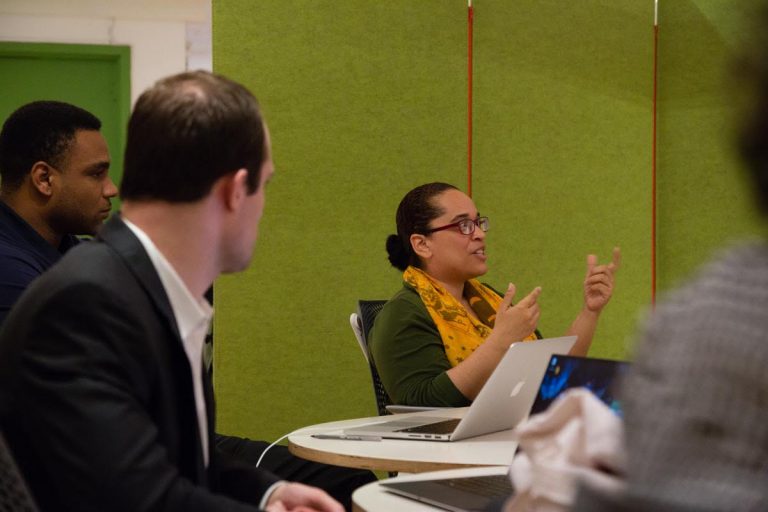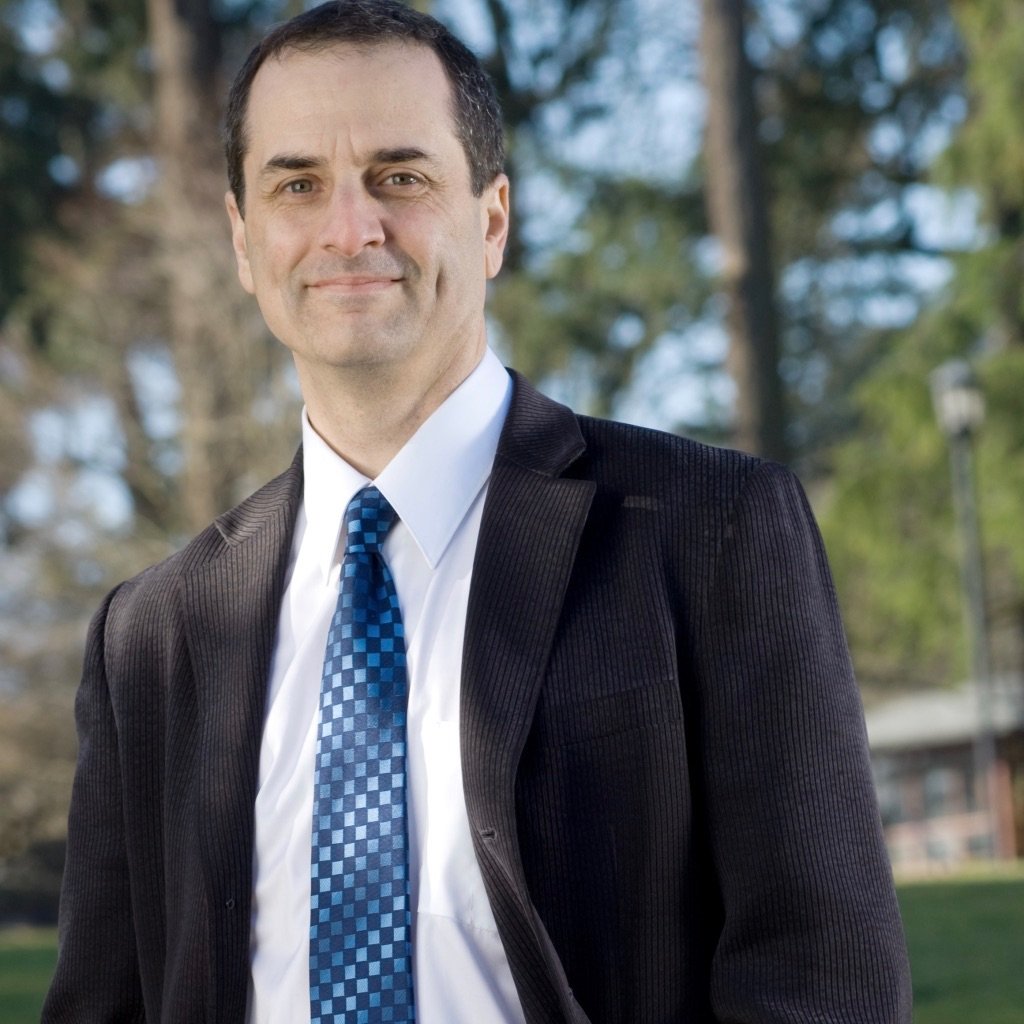Earlier this fall, two dozen investment professionals, finance professors, and MBA students and alums huddled in a conference room above Wall Street for a critical discussion: what is the skill set needed for a career in finance for impact?
The Bard MBA in Sustainability program, based in New York City, recently launched a new focus area in impact finance.
The mission is to train a new generation of investment professionals. Their goal is to move trillions of dollars out of investments that are reinforcing runaway climate change, water and air pollution, and waves of environmental refugees and into projects that can build a regenerative future through sustainable business.
Two examples: Sustainable business pioneer and Bard MBA Professor Hunter Lovins recently helped launch a truly fossil free exchange-traded fund (ETF), through her company Change Finance. Since its inception, the fund has been outperforming the S&P 500. Randy Strickland teaches the impact finance course within the MBA program, bringing insights from ESG (environment, social and governance) investing at scale through his day job in as a Director at Cornerstone Capital. The new Focus Area in Impact Finance is preparing students for these kinds of careers leading the transformation of conventional finance.
Exciting projects and employment opportunities in the space are emerging. But what skills should be taught?
Where the Jobs Are
At the “curricular design charette” the participants first brainstormed the sectors where impact finance jobs are beginning to show up. The list, part of which is shown below, was long with some surprising opportunities. These sectors include:
- Asset managers
- Bond issuers, private and government
- Investor Relations
- Non-profit engagement organizations
- Private equity
- Rating agencies
- Social venture accelerators
Hard Skills, Soft Skills
The debate then turned to the specific quantitative competencies that were required on both the finance and the impact sides– along with the general suite of soft MBA skills that employers look for. Bard MBA’s are already very well trained in evaluating and measuring social and environmental impact: this topic lies at the very core of the MBA in Sustainability degree.
On the finance side, participants agreed that students need to to see the “big picture” of asset allocation, building a portfolio across asset classes rather than gaining expertise in a narrow asset class. The overarching goal is to change the behavior of the big asset managers, and to do that, students need to be able to speak the language that MBA’s trained 30 years ago, and now running the industry, will understand. At the same time, graduates need the best modern tools around impact assessment and risk management.
To get there, the Bard MBA Focus Area requires a 9-credit classroom sequence: (1) Accounting and the Integrated Bottom Line, (2) Finance for Sustainability (covering core corporate finance topics with a sustainability lens) and (3) a dedicated course in impact finance called ImpactLab. In addition, there are 15 credits of experientially-based finance learning, discussed more below.
Following the charette, the Bard MBA put together a list of the principle “hard finance skills” expected of Bard graduates from the three courses. The team is currently reviewing the list to consider additions and subtractions.
Experience, Experience, Experience
A primary employment challenge the group identified was the fact that Bard MBA’s were not following the typical “apprenticeship” routes into finance. Instead, they were often looking to make lateral moves into impact investing from existing careers outside the industry. The solution: gain maximum resume building experience while in the MBA.
Bard MBA students in the first year take a two-semester course in sustainability consulting called NYCLab. This course, not offered at any other MBA program, has teams work on sustainability projects for real world clients like NASDAQ, UBS, Unilever, Eileen Fisher, Jet Blue and Siemen’s Wind. Impact Finance Focus Area students thus start their MBA program gaining a unique, deep immersion helping solving real impact finance issues.
In the final year, Bard MBA’s complete a nine-credit, individually mentored capstone. In this course, students have the opportunity to consult, intern and develop career-specific professional networks. Through both NYCLab and a finance-oriented capstone, as well as case competitions and other avenues, students gain the substantial experience needed to help them enter the world of impact finance.
Change Finance, Change the World
Elysa Hammond, Vice President of Sustainability at Clif Bar, says that to achieve sustainability, we need to transform four systems: food, water, energy and finance. And to transform the first three, we need to transform the fourth. This reality is motivating the Bard MBA Community to co-create the education that future investment professionals need now to take finance for impact to scale. The key is to combine cutting edge academic training with substantive real world experience, opening the door to careers moving capital from investments that are bad for people and planet towards projects that are doing good for the future.






